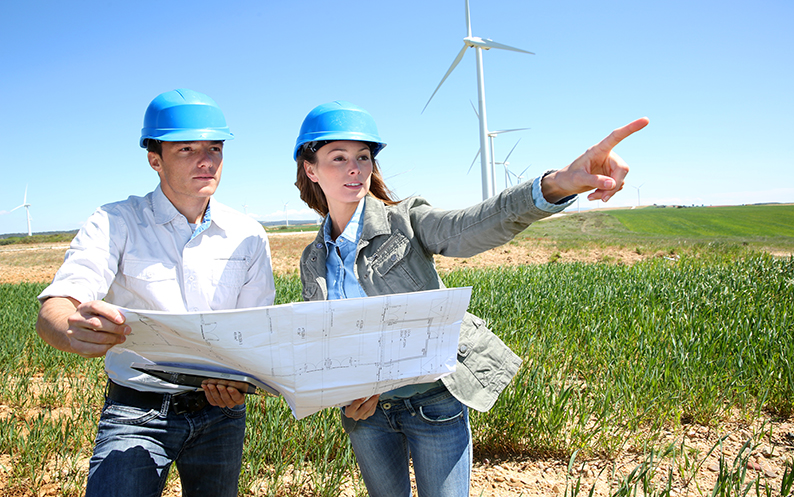We assisted the City of St. Albert and the Mountain Resort Municipality of Sun Peaks with Greenhouse Gas Reduction Local Action Plans. Both communities have a history of strong environmental planning and action and the new plans helped to identify some short term and longer term steps to take in order to significantly reduce community based GHG’s and overall energy use. These efforts are timely given the implications from recent findings in the Intergovernmental Panel on Climate Change summary report.
In a nutshell the Panel is ever more certain, in fact 95% so, that humans are the main cause of recent observed warming. They are also of the opinion that we are failing in our efforts to keep warming below what is needed to continue with only a moderate disruption of our climate and oceans. This means that it is more important (especially if a strong economy is your goal) than ever to continue with smart actions to reduce contributions to GHG emissions and to focus efforts on infrastructure and planning that can help your communities thrive through the expected changes to our climate and global energy policy context.
Here is a brief summary pulled from the Panel’s recent findings followed by some thoughts on what it means for you.
Findings:
• Warming of the climate system is unequivocal and it is extremely likely that human influence has been the dominant cause of the observed warming since the mid-20th century.
- It’s not just the climate; the ocean has absorbed about 30% of the emitted human caused carbon dioxide, causing increased ocean acidification.
- Climate models have improved since the last report in 2007.
- Limiting climate change and ocean acidification will require substantial and sustained reductions of greenhouse gas emissions.
What does this mean to you?
There are two major shifts occurring that might impact your community and economic goals. One is the changing climate and the other is the shifting energy policy context. A changing climate in your region can impact everything from access to the natural and human resources your economy uses to the strength of the natural and built/infrastructure your economy is built upon. Regions like the Columbia Basin, BC and others are recognizing these changes and responding with adaptation plans to work through the considerations that might be needed in the coming years.
Some of this work recognizes that;
1) Local economies are vulnerable to climate change, but the specific impacts are harder to pinpoint. The ‘Pine- Beetle’ epidemic across BC and AB could be one example to learn from.
2) Local economies are in part built upon the foundation of local government resources, services and infrastructure, so impacts on these foundational assets need to be considered.
3) Current city infrastructure approaches can be inadequate to manage changing climates and that due to the costs of overhauls, we need more innovative approaches to designing, maintaining and building infrastructure.
4) Water capture systems may be dealing with more variable water cycles that are harder plan for and that water reduction programs may help to reduce vulnerability in this area.
5) While food may not decline overall, there may be shifts in productivity around the world leading to some instability and the associated local ramifications like spikes in prices.
6) Current construction practices for buildings may need to shift, with improved site selection, better building forms and envelopes to reduce heating and cooling needs, and better building materials to withstand extreme events.
In addition to the slowly changing climate and the need to adapt, energy prices in Western Canada are generally increasing as are policies to help reduce our contribution to a changing climate. The most recent IPCC report and resulting response will likely exacerbate these trends. Energy efficient communities are increasingly in a position to outperform their resource dependant counterparts. The opportunity for more energy efficient and less fossil fuel dependent economies is creating new jobs and businesses, which in general provide more jobs per dollars invested, than current fossil fuel industries. Efficient municipalities are more able than ever to direct funds toward core services instead of energy costs from leaky buildings and old technology.
Those economies dependent on energy use and fossil fuels still have an opportunity to leverage that current capacity to slowly shift toward more robust resilient solutions. A wholesale immediate shift for these communities isn’t reasonable, but starting to identify vulnerabilities and invest in new energy efficient and low carbon opportunities is.
Finally, as local government and community leaders you have the ability not just to adapt to the changes, but to support efforts to enhance the policy environment to help reduce the short term health impacts from fossil fuel use and the long term vulnerabilities from a changing climate. Our communities are a large enough influence on atmosphere and oceans that we can shift the global climate and impact the conditions for sea life. If we don’t address the root causes of these issues and others then efforts to adapt and become increasingly resilient will continue to mount and the rising costs will become a self-fulfilling prophecy. On the other hand, if we adapt and reduce our contribution to climate change we might just get through this thing and thrive.
Links:
- Government of Alberta Climate Change
- Alberta Climate Dialogue
- Municipal Climate Change Action Centre
- Pembina Institute
Contact us if you want to learn more about funding opportunities for Greenhouse Gas Reduction Plans.
By Dan Wilson
dwilson[at]whistlercentre.ca
(604) 966-4457

